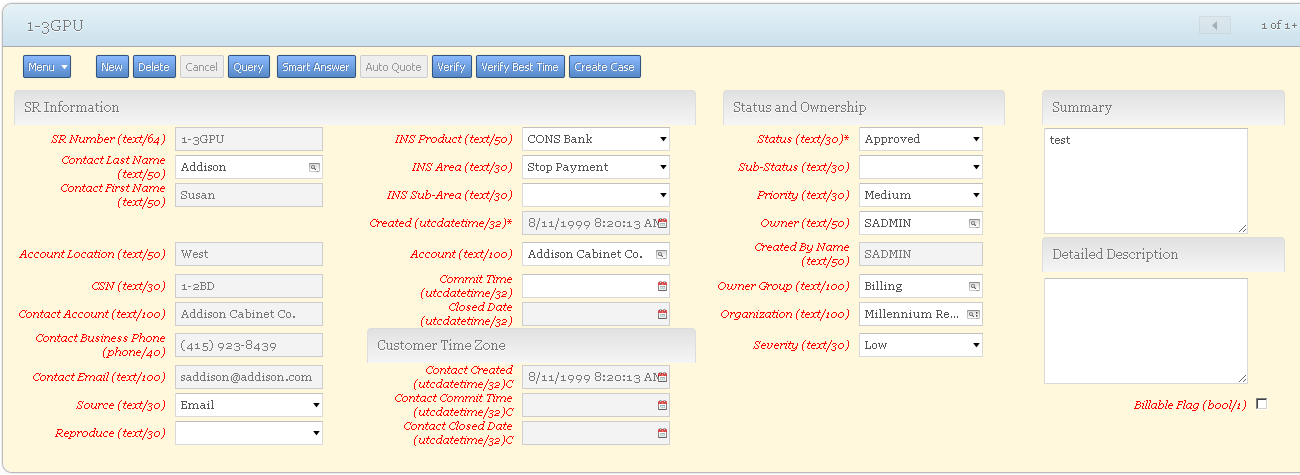Siebel Open UI: Restricting Functionality to Groups of Users
Remember the 'see-through' applets example? If not (and if you're too lazy to click the link), it demonstrates how we can display field-level metadata with a simple double-click on a form applet.
Now, whenever I demonstrate this to my students and customers, they really like it. But then always comes the question, what if an unsuspecting end user double-clicks by accident? Of course, we don't want to confuse end users (and the helpdesk staff) with an applet that looks like this:
So how can we restrict Open UI functionality to certain users or groups such as super users or analysts? One possible answer to this questions is found in the Manifest Expressions view.
Let's assume - for the sake of simplicity - that you have assigned positions like 'Siebel Administrator' or 'Open UI Administrator' to some of your fellow employees.
With the following custom manifest expression you can easily provide conditional logic to load certain JavaScript files (or web templates) only for people who have an 'Admin' position:
GetProfileAttrAsList('Me.Position') LIKE "*Admin*"
The above expression evaluates to TRUE when the string returned by the GetProfileAttrAsList function (a quite useful method I must say) contains the sub-string 'Admin'. It would evaluate to FALSE for everyone who is not an administrator.
have a nice day
@lex
Now, whenever I demonstrate this to my students and customers, they really like it. But then always comes the question, what if an unsuspecting end user double-clicks by accident? Of course, we don't want to confuse end users (and the helpdesk staff) with an applet that looks like this:
 |
| Click to enlarge. |
Let's assume - for the sake of simplicity - that you have assigned positions like 'Siebel Administrator' or 'Open UI Administrator' to some of your fellow employees.
With the following custom manifest expression you can easily provide conditional logic to load certain JavaScript files (or web templates) only for people who have an 'Admin' position:
GetProfileAttrAsList('Me.Position') LIKE "*Admin*"
The above expression evaluates to TRUE when the string returned by the GetProfileAttrAsList function (a quite useful method I must say) contains the sub-string 'Admin'. It would evaluate to FALSE for everyone who is not an administrator.
have a nice day
@lex
תגובות
הוסף רשומת תגובה